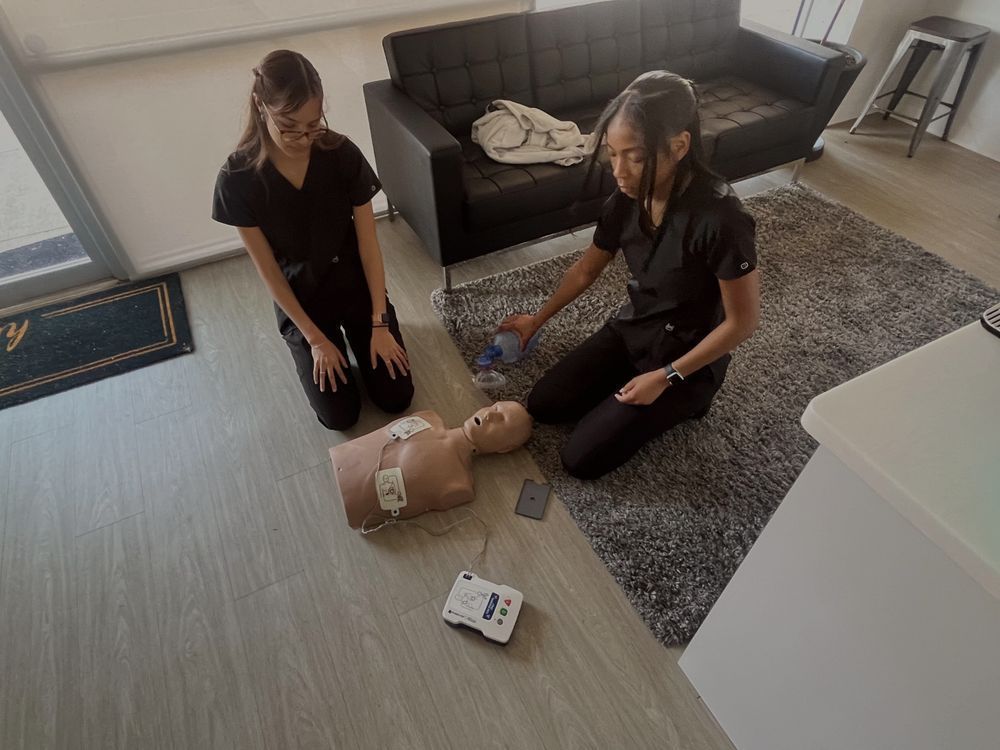Medical Assistant vs. Medical Administrative Courses What’s the Difference
Medical Assistant vs. Medical Administrative Courses: What’s the Difference?
Choosing a career in healthcare can be incredibly rewarding, but deciding which path to pursue isn’t always easy. Two popular options—Medical Assistant (MA) and Medical Office Specialist (MOS)—offer different experiences, responsibilities, and trajectories. While both support the delivery of patient care and play crucial roles in healthcare environments, the daily duties, required training, and long-term opportunities vary greatly.
If you’re trying to figure out whether you’d thrive more in a hands-on clinical role or an administrative one behind the scenes, this guide will help you compare these two paths and determine which career is the right fit for you.
Understanding the Role of a Medical Assistant
Medical assistants are multi-skilled professionals who perform both clinical and administrative tasks. They often serve as the vital link between patients and healthcare providers.
Clinical Responsibilities
Medical assistants are frequently found in the exam room, taking vital signs, preparing patients for examination, collecting lab samples, or assisting doctors with procedures. In some settings, they may administer injections, remove sutures, or perform EKGs, depending on state laws and their training.
Administrative Responsibilities
MAs often handle scheduling appointments, updating patient records, managing billing, and handling insurance paperwork. Their dual skill set makes them versatile and valuable team members in hospitals, clinics, and private practices.
Work Environment
You’ll commonly find MAs in ambulatory settings like doctor’s offices, outpatient clinics, urgent care centers, and community health organizations. The pace is usually fast, and the ability to multitask is essential.
Understanding the Role of a Medical Office Specialist
Medical office specialists—also known as medical administrative assistants or healthcare office assistants—focus primarily on the business and administrative functions of a medical office.
Core Responsibilities
MOS professionals greet patients, manage medical records, schedule appointments, verify insurance, and ensure billing accuracy. They play a key role in maintaining the flow of operations within the healthcare facility.
Technology and Documentation
Medical office specialists are proficient in electronic health records (EHRs), coding systems like ICD-10 and CPT, and insurance billing software. Their organizational skills ensure smooth operations and regulatory compliance.
Work Environment
These specialists typically work in front-office positions at clinics, hospitals, dental offices, and specialty practices. They may also find roles in medical billing companies, insurance firms, or long-term care facilities.
What Skills Do You Need?
Both careers demand a unique blend of hard and soft skills, but they diverge based on job expectations.
For Medical Assistants
Attention to detail in clinical procedures
Ability to multitask between patient care and documentation
Compassion and patient-centered communication
Knowledge of basic anatomy and pharmacology
Competence in EHR software and scheduling systems
For Medical Office Specialists
Strong organizational and clerical skills
Proficiency in healthcare software and coding systems
Clear and professional communication
Knowledge of insurance procedures and billing practices
Ability to manage records and patient privacy (HIPAA compliance)
Career Advancement Opportunities
Medical Assistant Pathways
Because MAs get clinical experience early, they often have an easier time transitioning to roles in nursing, phlebotomy, surgical technology, or even radiology with additional training. Some go on to become nurse practitioners, physician assistants, or health educators.
Medical Office Specialist Pathways
Medical office specialists may grow into roles such as billing supervisor, office manager, health information technician, or practice administrator. For those interested in healthcare administration or management, this can be a solid starting point.
Lifestyle Considerations
When choosing between the two, think about your personal preferences and professional goals.
If you enjoy:
Direct patient care
Active, hands-on work
Fast-paced environments
Clinical procedures
Then you might thrive as a Medical Assistant.
If you enjoy:
Working behind the scenes
Structured office tasks
Data entry and documentation
Organizational workflows
Then becoming a Medical Office Specialist could be a better fit.
Also consider physical requirements—MAs are often on their feet for much of the day, while MOS professionals typically work at a desk.
Final Thoughts: Which Career Fits You?
Deciding between medical assisting and medical office work comes down to your personality, strengths, and long-term goals.
If you want to:
Be on the frontlines of patient care
Learn clinical procedures Work in a hands-on, fast-paced environment
Choose a Medical Assistant career.
If you prefer:
A structured office role
Administrative responsibility
Contributing to healthcare behind the scenes
Then consider becoming a Medical Office Specialist.
Both careers play a crucial role in healthcare and offer promising futures with solid job security and advancement potential. The good news? You don’t need to spend years in school to get started.
Ready to Begin Your Journey?
If you’re inspired by the idea of helping real patients receive real care—and want to start a career that blends flexibility with impact—consider training to become a Medical Assistant.
Pulse Medical Assistant School offers a streamlined, online-first program designed to fast-track your career in just 16 weeks. You’ll complete online coursework on your schedule while gaining in-person lab experience that prepares you to work confidently in real clinical environments.
Join Pulse Medical Assistant School today and take the first step toward a career where you make a real difference—one patient at a time.
You're only a few months from the medical assistant career you deserve.
